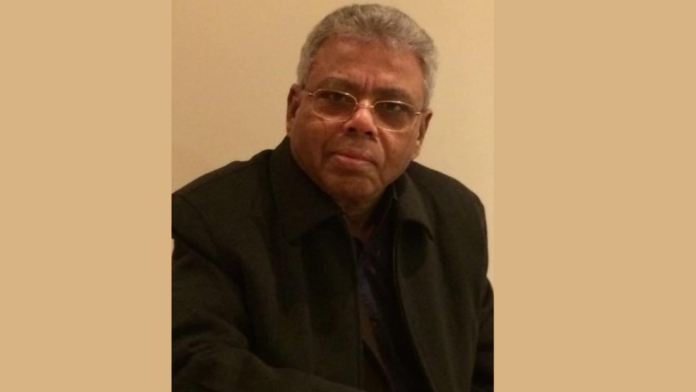This powerful statement encapsulates the life’s work of Dr. Sailen Kumar Chaudhuri, a distinguished retired professional based in Delhi NCR. With an illustrious 30-year career in the textile industry, Dr. Chaudhuri has left an indelible mark on the global wool and textile sector.
In an exclusive conversation, Dr. Chaudhuri reflects on his journey, from managing a textile plant in Haryana to leading transformative projects as Regional Director for India and Southeast Asia at The Woolmark Company. Under his stewardship, Woolmark became synonymous with quality and innovation, achieving a remarkable 70% brand recognition globally.
“One of my proudest achievements was modernizing India’s shawl exports,” he shares. Collaborating with European experts, he revolutionized traditional shawls into high-fashion items, putting cities like Amritsar and Ludhiana on the global map. The success of this initiative was recognized with a Shiropa blessing from the Golden Temple, a deeply cherished honor.
Dr. Chaudhuri’s tenure also saw a groundbreaking shift in India’s knitwear export industry. At a time when Indian exporters were solely catering to the Russian market without quality standards, a sudden halt in demand left many businesses in ruins. Stepping in, Dr. Chaudhuri led efforts to train exporters in crafting high-quality knitwear suitable for Western markets. “We transformed the industry from scratch, equipping them with the skills and quality benchmarks to thrive internationally,” he recounts.
His visionary leadership extended to creating the Wool Club and Shawl Club, initiatives that fostered collaboration and innovation within the textile industry. Such contributions earned him accolades, including the prestigious Institute Medal from the Textile Institute, Manchester, where he also served as Global Vice Chairman.
Notably, the Joint Business Group of Australia and India invited Dr. Chaudhuri to serve as its Chairman. “Being entrusted with such a position was a significant acknowledgment of my contributions to fostering international collaboration in textiles and trade,” he says, reflecting on this remarkable honor.
In 2014, IIT Delhi honored Dr. Chaudhuri for his outstanding contributions to national development, recognizing his efforts in mentoring the next generation of textile professionals.
But Dr. Chaudhuri’s passion extends beyond textiles. A firm believer in the power of human potential, he now focuses on graphology and graphotherapy—the science of handwriting analysis. He envisions this as a transformative tool to build emotional stability, confidence, and leadership in India’s youth. “By identifying hidden strengths, we can prepare young minds for global challenges,” he says, outlining his goal of introducing graphology in schools.
Equally inspiring is his work in women’s empowerment. Dr. Chaudhuri leads a project training destitute women to produce hand-knitted wool garments for Scandinavian markets. “This initiative not only provides financial independence but also showcases the potential of cooperative models for rural development,” he explains.
From textiles to human development, Dr. Sailen Kumar Chaudhuri continues to be a beacon of innovation and leadership. “India’s true strength lies in its people,” he concludes. “Together, we can unlock unimaginable potential.”


